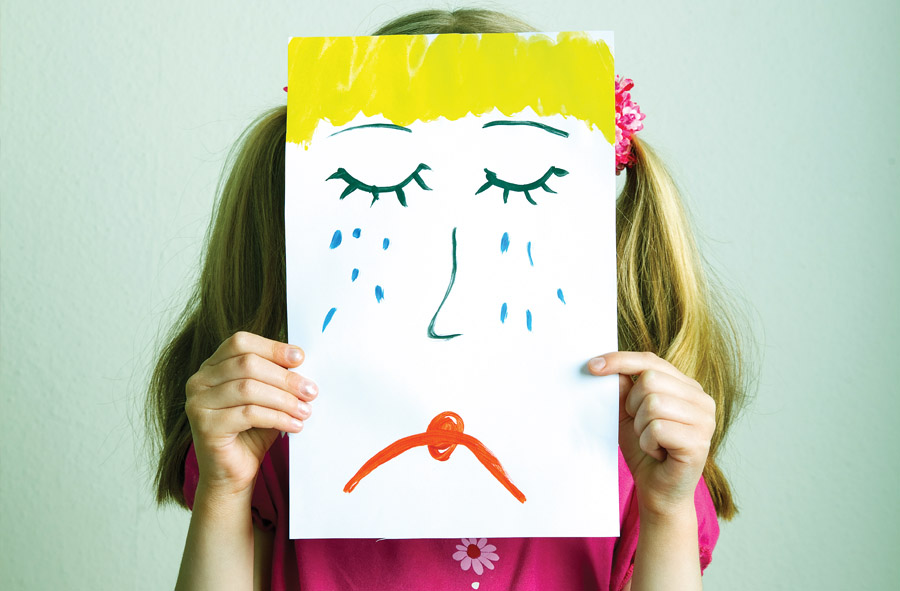
While we may think of low mood or other challenges as adult problems, they can affect people at any age. Children and teenagers can experience mental disorders like depression. Sometimes it can be difficult for adults to understand how difficult children’s problems can be because we look at their problems through adult eyes. But the pressures of growing up can be very hard for some children. Depression is a type of mental disorder called a mood disorder. Mood disorders affect the way you feel, which also affects the way you think and act.
With depression, you may feel ‘down’, hopeless, or find that you can’t enjoy things you used to like. Many people who experience depression feel irritable or angry. And some people say they feel ‘numb’ all the time. Recognising depression in young people can be more difficult than recognising depression in adults because young people experience so many changes.
Depression often starts between the ages of 15 and 30, but it can affect anyone, even teens and younger children. While we don’t know exactly what causes depression, many factors are likely at play. These include family history, personality, life events, and changes in your child’s body. Certain medications and physical illnesses can also contribute to depression.
Changes in feeling
Your child may show signs of being unhappy, worried, guilty, angry, fearful, helpless, hopeless, lonely, or rejected.
Changes in physical health
Your child may start to complain of headaches or general aches and pains that you can’t explain. They may feel tired all the time or have problems eating or sleeping. Your child may unexpectedly gain or lose weight.
Changes in thinking
Your child may say things that indicate low self-esteem, self-dislike or self-blame, for example, they may only talk about themselves negatively. They may have a hard time concentrating. In some cases, they may show signs that they are thinking of suicide.
Changes in behaviour
Your child may withdraw from others, cry easily, or show less interest in sports, games, or other fun activities that they normally enjoy. They might over-react and have sudden outbursts of anger or tears over small incidents. Some of these changes may be signs of mental health problems other than depression. It’s important to look at the bigger picture: How intense the changes are, how they impact your child’s life, and how long they last. It’s particularly important to talk to your child if you’ve noticed several changes lasting more than two weeks.
What can I do about it?
Depression is very effectively treatable. Children, teenagers, and adults can all recover from depression. For children and teenagers in particular, early treatment is important so they can get back to their education and other goals as quickly as possible. Support for a young person who experiences depression may come from several different people and places. Your family doctor is often the first place you start, but you may also find support through people like psychiatrists, psychologists, counsellors, social workers, or peer support workers. Schools are also an important place for all children.
Many schools offer programmes that build skills, resiliency, and supports. If you’re concerned about your child’s health, teachers and school counsellors can describe changes they’ve seen or problems they’ve noticed during the school day. If your child is diagnosed with a mental illness, your child’s school may make small changes to support your child’s learning goals. Many schools offer counselling or referrals to mental health services.
It is important to recognise your own feelings about your child’s depression. Many people feel guilty or frustrated when a loved one is diagnosed with a mental disorder, and this can affect family relationships. It can also be difficult to cope with your child’s unhappy feelings.
Many of the strategies that help your child can help the entire family. Family counselling can give everyone an opportunity to shape their experiences and help you develop strategies that take care of the entire family’s well-being. Support groups can connect you with other caregivers who are supporting a loved one. And, of course, wellness strategies at home are helpful for everyone.
—[email protected]
Dr Fabian Saarloos is Clinical and Health Psychologist at Al Harub Medical Centre